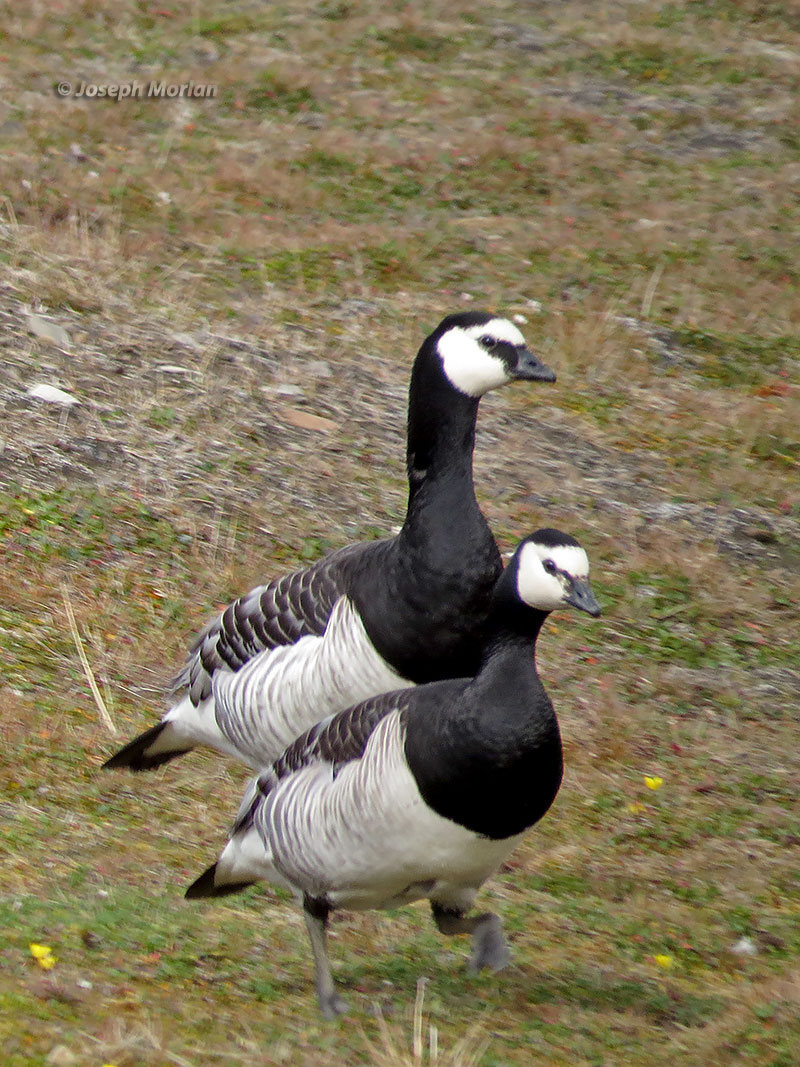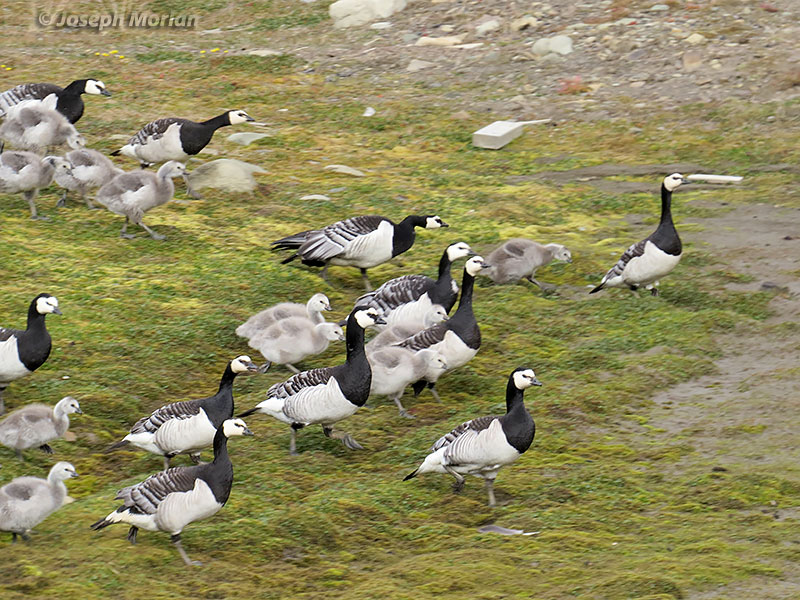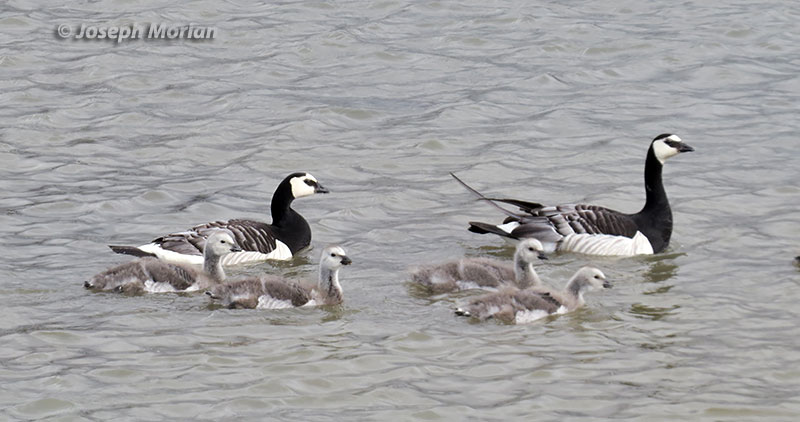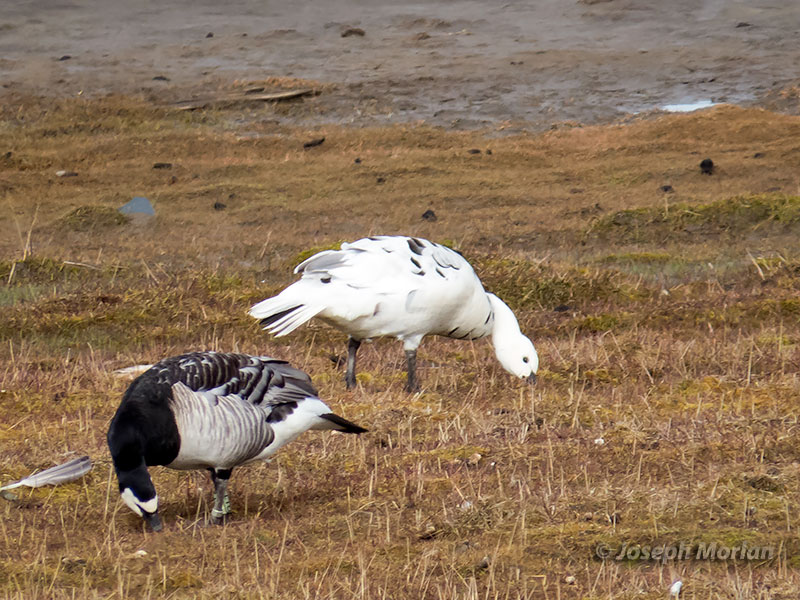



Now protected, the Svalbard population has increased from around 300 birds in 1948 to an estimated 33,000 birds today. This year seems to have been quite successful judging from the number of large chicks we saw. The entire Svalbard population winters on the Solway Firth on the England/Scotland border, among the smallest winter range of any goose population. The name "Barnacle Goose" comes from a bizarre legend, complete with eyewitness accounts that they emerge from Gooseneck Barnacles. Three or four distinct North Atlantic populations have been identified, each with its own breeding area in the Arctic and associated wintering area in Northern Europe.
The bottom photo shows a partial albino (leucistic) individual. Owen & Skimming (1992) reported a total of 15 (including 11 in 21 years) of such aberrant birds in the Svalbard population, all wintering in the Solway Firth. Two other much larger populations produced only one bird of this type in 30 years. Leucism is in this species is reportedly controlled by a single, recessive allele. These aberrant birds have a shorter life span than normal birds apparently because they are more likely to be shot by hunters. However, they are just as successful in reproduction as normal birds.
Canon SX50 HS PowerShot.
References:
BirdLife International. 2016. Branta leucopsis. The IUCN Red List of Threatened Species 2016: e.T22679943A85970946. http://dx.doi.org/10.2305/IUCN.UK.2016-3.RLTS.T22679943A85970946.en. Downloaded on 04 September 2018.
Carboneras, C. & Kirwan, G.M. (2018). Barnacle Goose (Branta leucopsis). In: del Hoyo, J., Elliott, A., Sargatal, J., Christie, D.A. & de Juana, E. (eds.). Handbook of the Birds of the World Alive. Lynx Edicions, Barcelona. (retrieved from https://www.hbw.com/node/52822 on 4 September 2018).
Owen, M. and Skimmings, P. (1992), The occurrence and performance of leucistic Barnacle Geese Branta leucopsis. Ibis, 134: 22-26. doi:10.1111/j.1474-919X.1992.tb07224.x